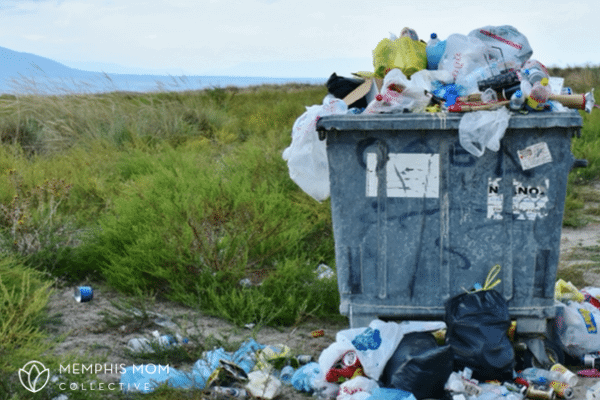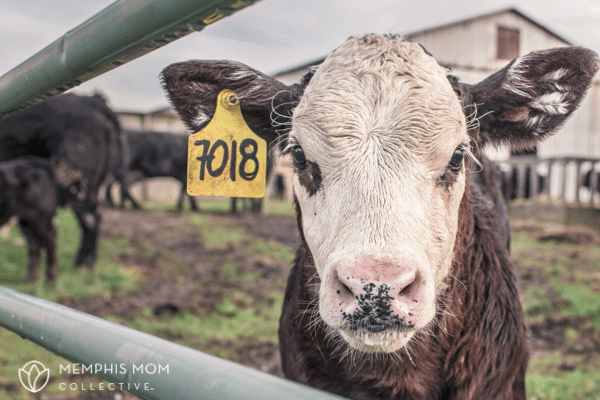Living A More Sustainable Life
Global warming. Climate change. Sustainability. Eco-friendly. Clean energy. I am certain that you have heard or read these buzzwords just about everywhere, but what do they mean?
Quick breakdown: basically our planet is warming, becoming hotter than it needs to be, and this is disrupting major ecosystems including our own. The planet’s warming temperature is brought on by fossil fuels. Fossil Fuels? Fossil fuels such as coal, crude oil, and natural gas are all burned and released into our atmosphere during the production and manufacturing of products. Doesn’t seem too bad, right? Wrong. Fossil fuels release harmful gases, like carbon, methane, and nitrogen oxide, in large amounts. So when fossil fuels are heated, they emit harmful gases and these gases (and the heat) then become trapped into our atmosphere. These gases really bring the heat. And, with our planet increasing in temperature, this causes big ice caps and glaciers to melt, which increases our sea and ocean levels, which changes our weather patterns and different weather patterns produce droughts, low crop yields, extreme heat, species extinction, and more.
Now you are thinking, “How can I help slow warming temperatures, which seems natural?” The products and energy that we use in our daily lives are the culprit, which means WE ARE THE PROBLEM.
How can we help sustain both the planet and the lives on the planet?
1. Eliminate Single-Use Plastic
Single-use plastic, what’s that? Just as the name implies, it is a plastic product that will be used once then trashed. Single-use plastic comes in the form of shopping bags, straws, take-out cutlery, food packaging, beverage bottles, and more. Instead, opt for reusable and cloth tote shopping bags, metal reusable straws, bamboo reusable cutlery, glass storage containers, and glass water bottles. Eliminating your use of single-use plastic is just a start; ideally we should set to eliminate all plastic production and use.
2. Reduce Your Energy Footprint
Remember when you were a child and the rule was to turn off the water while brushing your teeth? Yeah, that same rule applies today. Reduce your shower time. Turn off lights and unplug appliances and electronics when not in use. Delete old, read, and spam emails frequently. Opt for energy-efficient appliances. I know using our AC less in southern states can be somewhat challenging with our summers, but try to open windows more. Also, clean your air ducts and filters frequently. For laundry, wash only full loads and wash in cold water and air dry when possible. Use a power strip. Opt for cleaner cleaning products
3. Buy Less
Do you really need all of the things in all of the colors, styles, and patterns? Probably not. Overconsumption and rapid production of goods play an enormous role in our climate crisis. It is simple: when you choose wisely and buy less, companies produce less, which decreases our fossil fuel production. Not only is the production of goods harmful but so is the waste of goods. Waste in both the sense of disregard and overproduction. The air and water pollution that is resulting because of the amount of goods we toss yearly is mindblowing. Become more intentional with what and how much you purchase and what companies you choose to purchase your goods.
4. Eat Less Meat
“But where will I get my protein?” Um, the same place where your beef got it’s protein: the plants. I am not vegan, but our current animal agriculture practices hold the second leading role in our climate crisis. This is leading to the rapid degradation of our land, specifically our soil. Most of the crops grown, like wheat, corn, and soy are grown for the animals raised for the food industry. Over time the farming practices have become less environmentally friendly with the added use of chemicals, over farming, and animal waste. The inhumane practices of animal farming adds to those trapped gases we discussed earlier. Not only are the gases released into our atmosphere but all of the chemicals that were injected to the animal are then released into the animal’s waste and the animal’s waste toxins eventually end up in our drinking water supply. Animal agriculture gives us a 2 for 1 special with air and water pollution. So, add Meatless Mondays to your calendar. Check out this guide on on eating a vegetarian diet. Shop your local farmer’s markets. Buy Organic, NON-GMO, Vegan, Free-Range, and more when possible. Buy seasonal fruits and vegetables. Swap for dairy alternatives. Give your green thumb a try and grow your own produce and herbs.
5. Monitor your waste
Get up close and personal with your family’s waste, food and material. Did you know that 94% of the food we toss out ends up in our landfills? Take your produce scraps and start composting. Start meal planning. Shop for less packaged foods. Store your foods properly. Before you recycle your unwanted material goods, try upcycling and donating to someone in need. If you recycle, recycle properly. Get familiar with the things that can and cannot be recycled. The EPA created the perfect guide on how to recycle.
These few tips are great and sure to jumpstart you leading a more sustainable lifestyle in no time, but the overall goal is for us to reduce our consumption in all resource and energy areas of our lives. The family follows Mom, so continue to educate yourself on current events relating to our climate crisis and the solutions that we can add to our lifestyles to combat it. We got to somewhat enjoy this planet and all of its beauty but our children are just getting started and the future of their planet is not so bright. Can you imagine our children not experiencing certain animals, beaches, fresh air, and clean water? I cannot.










